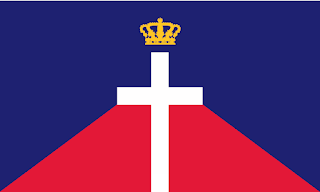Friday, July 26, 2013
No Contradiction between Genesis and Darwin
Most of us wonder about our origins.
There have been two apparently contradictory accounts of it.
There is the account in Genesis of how God created heaven and earth and all living things in six days. And there is Darwin's account of how things evolved over enormously long periods, the mechanism of which is genetic variation and natural selection.
To many there is a hopeless contradiction between these two accounts.
The notion of language games helps us here, for it focuses on action rather than truth and falsehood.
We use the terms "true" and "false" in certain contexts.
Chiefly when we are investigating whether something is so or not, as in a scientific investigation.
Darwin was imbued with the methods of science, observing, sorting the true from the false; using the methods of scientific inquiry to give an account of the origins of things.
But why can't there be other ways of accounting for the origin of things, using other language games, ones that focus on other practices than dividing truth from falsehood?
A person for whom the practices of worship and prayer are central to his or her life might respond to fundamental questions in a different way and might find the account of origins in Genesis more real.
His search would be conducted differently from a scientist's. He might pray for guidance. This would not necessarily produce an answer in the scientific sense, for he would be seeking different satisfactions.
So there need be no contradiction between Genesis and Darwin, but what is important is to be clear on the nature of one's commitments.
Source: John M. Heaton & Judy Groves. Introducing Wittgenstein: a Graphic Guide. (Icon Books, 2009) pp. 120-122.
Labels: philosophy, religion and science, truth, Wittgenstein
Friday, July 19, 2013
European Slaves in the Medieval Period
Source: Hugh Trevor-Roper. The Rise of Christian Europe. (Harcourt, Brace & World, 1965) p. 92.
Labels: history, Islam, Jews, slavery, White folks
Saturday, July 13, 2013
White's "The Science Delusion"
It is very advisable to examine and dissect the men of science for once, since they for their part are quite accustomed to laying bold hands on everything in the world, even the most venerable things, and taking them to pieces. –Friedrich Nietzsche, epigraph to The Science Delusion.
Curtis White's latest non-fiction offering is The Science Delusion: Asking the Big Questions in a Culture of Easy Answers (Melville House, 2013). For those who wonder about such things, a self-described atheist, White is not critiquing science from a religious perspective. White's attack is grounded in the notion of classical Romanticism as a counterculture to a science or scientism that seeks to subsume or devalue non-scientific human enterprises such as art, religion, and philosophy.
White begins by taking a look at the "new atheists"--Dawkins, Hitchens, Rosenberg, and Harris—observing "that the story these writers have to tell is one that a very powerful part of our culture wants told and emphatically so" (p. 3). He develops the idea of science's "too-comfortable place in the broader ideology of social regimentation, economic exploitation, environmental destruction, and industrial militarism," declaring that "how the ideology of science meshes with the broader ideology of capitalism will be a consistent interest of my investigation here" (p. 11). In this vein, White wonders: "Where is Richard Dawkins's book on the almighty, self-correcting Market God? Or on the military-industrial complex that science and technology has made possible? But, then, it's not in science's interest to notice such things" (p. 55).
After taking on the new atheists, White goes after biology, neuroscience, and physics. Lawrence Krauss, Watson and Crick, Richard Feynman, Stephen Hawking, and Sebastian Seung, among others, fall under White's withering gaze. Along the way, he also brings to bear the arguments of others more attuned to Romanticism, citing for example, Friedrich Schiller: "Art's primary purpose as antagonist to the 'robot' is to 'model freedom.' 'Art models freedom' is Schiller's aesthetic mantra, and it is the Romantic aesthetic in full force. Do you want to know what it is like to be free? Then live in art. ... Art is a counter-discourse, it is a counterculture, or it's not art" (p. 69).
Contra reductive physicalism/materialism, White also cites physicist Arthur Eddington: "The stuff of the world is mind-stuff" (p. 174).. And James Jeans, also a physicist: "I incline to the idealistic theory that consciousness is fundamental, and that the material universe is derivative from consciousness, not consciousness from the material universe ... In general the universe seems to me to be nearer to a great thought than to a great machine" (p. 174).
In closing, here are two excerpts from White's final pages:
"We [Americans] are a culture in which self-evident lies, supported by stunning lapses in argument, are eagerly taken up by our most literate public, which is happy to call it 'fascinating' and 'provocative,' while also assuming it is our inevitable future" (p. 182).
"... Romanticism goes science one better: it also liberates us from the scam—the delusions—of science, of technology, and of the reign of the ever more efficient administration of life that has been the essential problem in the West for the last two centuries" (p. 192).
See also:
- Mark Kingwell, "Taking on scientism's big bullies: Hitchens, Dawkins and Pinker."The Globe and Mail. 14 June 2013.
- Pat Finn. "Romanticism for the 21st Century: Curtis White's 'The Science Delusion.' "Tottenville Review. Undated.
- Maggie Koerth-Baker. "The real problem with Curtis White's The Science Delusion." Boing Boing. 20 June 2013.
- Curtis White. "Ode to a Straw Man: What critics are getting wrong about my book." Slate. 12 July 2013.
Labels: art and literature, Curtis White, freedom, science, technology
Tuesday, July 09, 2013
Nothing Better than a Noble Failure
Don Hontar (during a visit at the San Miguel mission): ... your Christian community is commercially competitive.
Cardinal Altamira: Yes, it's very prosperous. Isn't that precisely why you want to take it over?
Don Hontar: No, you should've achieved a noble failure if you wanted the approval of the state. There's nothing we like better than a noble failure.
Father Gabriel (to Father Rodrigo, on the eve of the destruction of the San Carlos mission): If might is right then love has no place in the world. It may be so but I don't have the strength to live in a world like that ...
Don Hontar (after the Portuguese massacre at, and the razing of, the San Carlos mission): You had no alternative, your Eminence. We must work in the world. The world is thus.
Cardinal Altamira: No, Señor Hontar, thus have we made the world. Thus I have made it.
Source: The Mission (1986)
Labels: film & television, Indians, quotations, religion
Monday, July 08, 2013
Mental Illness as Construct
I mentioned that that hadn't stopped him from putting one into the DSM-IV†, or the people who were then making the DSM-5 from fiddling with it.
"And it's bullshit," he said. "I mean you can't define it." [p. 23]
"the personality disorders are not at all clearly distinct from normal functioning or from each other," [p. 263; quoting Allen Frances; emphasis added]
What Insel‡ heard "over and over again" on his tour [of "hospitals and universities around the country"] was that psychiatrists were tired of being trapped by the DSM. "we are so embedded in this structure," he told me. He and his colleagues had spent so much time diagnosing mental disorders that "we actually believe they are real. But there's no reality. These are just constructs. There's no reality to schizophrenia or depression." [p. 340]
"Whatever we've been doing for five decades," [Insel] told me, "it ain't working. And when I look at the numbers–the number of suicides, the number of disabilities, mortality data–it's abysmal, and it's not getting any better. All the ways in which we've approached these illnesses, and with a lot of people working very hard, the outcomes we've got to point to are pretty bleak–especially, he added, compared with the "extraordinary" progress in other fields, such as the 70 percent drop in mortality from cardiovascular disease since he went to medical school or the steep reductions in deaths from auto accidents and homicides. There are some people for whom some of what we do is enormously helpful," he said. But even so, "we don't know which treatments are working for which people." And this litany of failure, he said, "gets us back to your interest in nosology. Maybe we just need to rethink this whole approach." [pp. 351-352]
Source: Gary Greenberg. The Book of Woe: The DSM and the Unmaking of Psychiatry (Penguin, 2013).
Notes:
*Allen J. Frances, MD is the former head of the Duke University School of Medicine's psychiatry department and was once referred to by The New York Times as "perhaps the most powerful psychiatrist in America." Frances served on the American Psychiatric Association's (APA) personality disorders work group for the 1980 DSM-III. He was chair of the APA task force responsible for the 1994 DSM-IV.
†DSM is an abbreviation for the APA's Diagnostic and Statistical Manual of Mental Disorders.
‡Thomas R. Insel, MD, is the Director of the National Institute of Mental Health.
See also:
- Gary Greenberg. "Inside the Battle to Define Mental Illness." Wired. 27 Dec. 2010.
- Gary Greenberg. "Not Diseases, but Categories of Suffering." The New York Times. 29 Jan. 2012.
- Gary Greenberg. "The Rats of N.I.M.H." The New Yorker. 16 May 2013.
Labels: medicine, psychology, quotations
Quotable: Every Journalist Knows
Source: Janet Malcolm. The Journalist and the Murderer (Vintage Books, 1990). p. 3.
Labels: media, quotations




